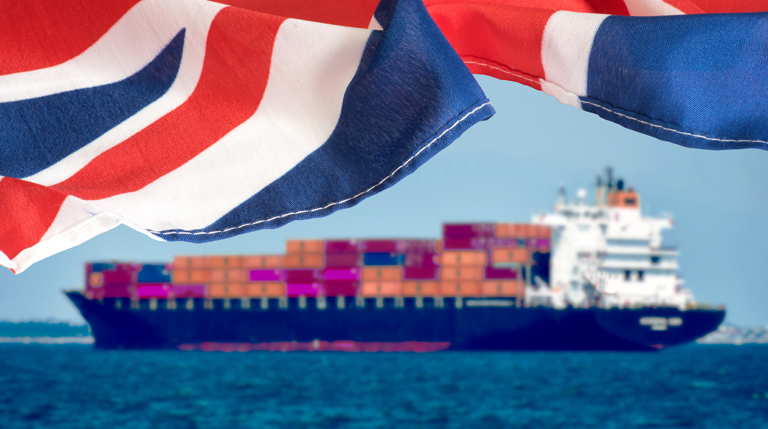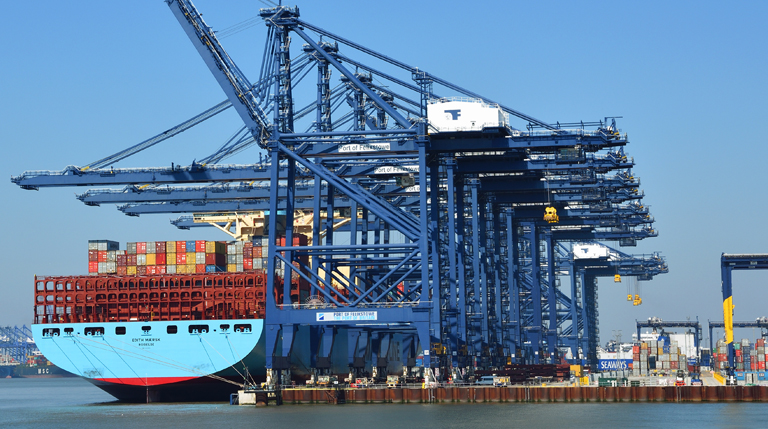How to Import EU Goods into the UK
Do you need to import goods or materials from the EU into Great Britain? Whatever your business is transporting, from retail products to controlled goods, there’s a range of options available to you. Uneek Group offers many different freight forwarding options designed to fit your needs, budget and time schedules.
IMPORT OPTIONS
When deciding how to import goods from Europe, you can choose from one of the following main options. However, it’s worth being aware that your responsibilities will vary depending on whether you hire a Customs Intermediary (a company that deals with Customs processes for you) and that additional processes may be necessary dependent on entry location – further guidance is available on GOV.UK.
1. Standard Import Procedures (Full Custom Declarations)
Information and payments necessary for Full Custom Declarations are as follows: you’ll need commodity and customs procedure codes, which produce a unique reference number (additional information may be required for supplementary declarations), while payments may include Customs Duty, Excise Duty, and VAT. Customs Duty is paid when goods arrive in GB, either to HMRC directly or via a Duty Deferment Account where you can delay payment – Excise Duty must be paid unless goods are placed into suspension – and import VAT is either covered in Postponed VAT Accounting if your business is VAT-registered or if not, paid with Customs and Excise Duties.
2. Delayed Declarations
For up to six months after import, you can delay your Full Customs Declaration submission and Custom Duties payments (if they’re not controlled goods) – just make sure you maintain records of the goods you’re importing, including the EORI number and date/time the goods arrive. Plus, authorisation is required for Simplified Declaration procedures (see below) before submitting supplementary declarations.
3. Simplified Declarations
This is a popular choice for businesses moving controlled goods (though also used for non-controlled goods), such as animals, chemicals, excise goods, or food. However, as noted above, it requires authorisation. You’ll need to enter similar information on CHIEF, and if you’re not using a Customs Intermediary, your supplementary declaration must be submitted by the fourth working day of the following month. This then calculates what import duties need to be paid.
4. Transit
If you’re moving goods through multiple territories, or wish to complete Customs processes away from the border, Transit can be used to import materials into the UK. To start the movement, the EU exporter submits a declaration on NCTS (the Transit IT system), gives the haulier their EORI number/unique reference number to move goods with a CCG guarantee in place – then, the goods arrive in GB via an Office of Transit. To end the movement, authorised consignee status may be needed, as well as temporary storage authorisation, and NCTS access. If this isn’t carried out, goods may need to go to an Office of Destination, with the Transit Accompanying Document.
IMPORT CONSIDERATIONS
For all importing options from the EU to the UK, the following factors need consideration:
- EORI Number: If you don’t already have one issued by the UK (it starts with GB), then apply for one on GOV.UK – it only takes five-ten minutes.
- EU Declarant: For goods to pass through customs successfully, make sure the EU declarant (exporter) has their own EORI number and correct export licences/certificates – they’ll also need to make an export declaration on their own country’s system.
- Customs Intermediaries: Customs processes can be complicated, and many businesses don’t have the right staff or skills to manage them. As a result, most companies use Customs Intermediaries – if you do decide to make your own declarations, you’ll need specialist software, training, and a CHIEF badge(s).
- Import Licences/Certificates: Goods like food or livestock need import licences/certificates, so it’s important to check and apply for what you need. For most controlled goods, there may be additional documents needed, and extra processes to follow.
- Duty Deferment: If you’re using Delayed or Full Custom Declaration, check the UK Global Tariff for your items. If they attract Customs or Excise duty, you should use a Duty Deferment account to pay your owed duties by monthly direct debit (this needs to be set up before importing goods).
- VAT Responsibilities: Make sure you check VAT guidance to understand your responsibilities, and why you need to retain evidence of import.
- Intrastat Returns: Continue to submit your Intrastat returns (if applicable) – or ask your Customs Intermediary if using one.
Are you ready to expand into the UK market? Whatever you need to import from Europe, we have the experience to ship commercial goods safely.
Contact Uneek-Group now for more information.
Email: [email protected]
Phone: +44 (0) 20 8984 0425
Website: www.uneek-group.co.uk
Uneek Forwarding is part of the Uneek Group Ltd



